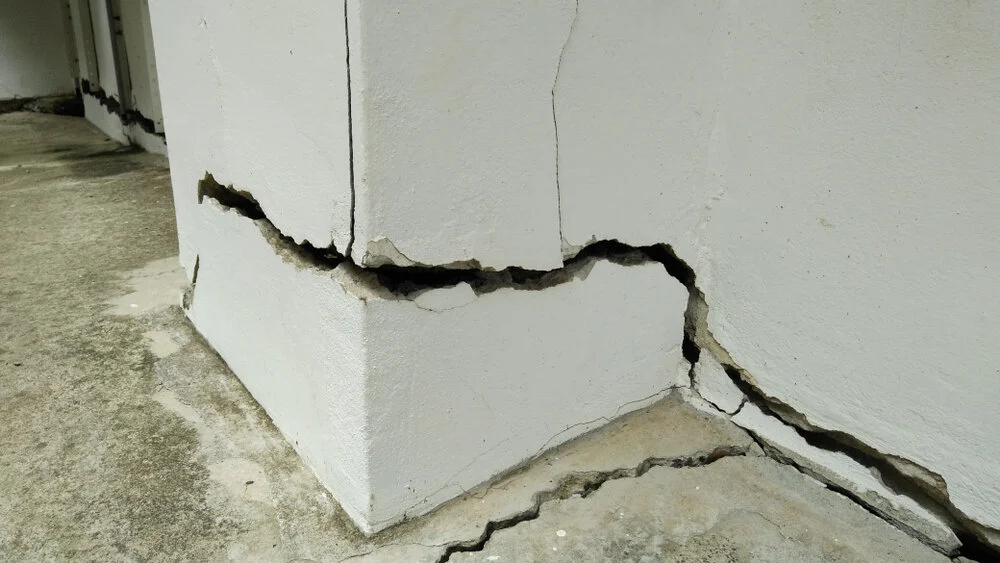The last 30 years have served as a good platform, but the next 30 years is where shit gets real. Today, in 2016, we are in the best possible time to start something or invent something. The opportunities open to us now are enormous, and most of us don’t even realize it. The Inevitable outlines the 12 biggest ways that the world is going to change and he gives us an insight into what the world of 2050 will look like. If you can position yourself to make the most of and leverage off these changes, you’re going to do very very well for yourself over the next three decades.
The shocking animation that reveals how a massive Antarctic crack has grown 17 miles in the last two MONTHS - and experts say it is now 'inevitable' it will create one of the biggest icebergs ever. The Inevitable Summary. “This is not a race against the machines. If we race against them, we lose. This is a race with the machines. You’ll be paid in the future based on how well you work with robots. Ninety percent of your coworkers will be unseen machines.”. Technology is moving at a fast rate. Solar cell microcracking is inevitable, but crack induced catastrophic failure doesn’t have to be. Most crystalline solar cells have cracks, or will develop them over time. This is not a flaw; it is the inevitable result of making a sheet of silicon that is more than 700 times wider than it is thick, and then putting it outdoors for 20 to 30.
“Understanding the 12 technological forces that will shape our future”
The Inevitable Summary


“This is not a race against the machines. If we race against them, we lose. This is a race with the machines. You’ll be paid in the future based on how well you work with robots. Ninety percent of your coworkers will be unseen machines.”
Technology is moving at a fast rate. Things that were previously considered ‘make believe’ are no longer fairy tale. Not all of these shifts will be welcomed – established industries will topple because old business models will not work, entire occupations will disappear, together with livelihoods.
Most of the greatest products running the lives of citizens in 2050 were not invented until after 2020. People in 2050 will look down at their wearable virtual reality contact lenses, downloadable avatars, AI interfaces and say “you didn’t really have the internet!”
The graybeards will be saying saying “Can you imagine how awesome it would be to be an innovator in 2016? It was a wide open frontier! You could almost pick some category, add some AI to it and put it on the cloud. People will respond “Oh if only I realized how possible things were back then”
It is the best time ever in human history to begin (innovate). You are not late. The Inevitable looks at the technological forces that are going to shape our future.

1 Becoming – Moving from fixed products to always upgrading services and subscriptions:
Technological life in the future will be endless upgrades. We will be endless newbies trying to keep up – presenting a constant discomfort to constant change.
2 Cognifying – making everything smarter using cheap AI:

The arrival of artificial intelligence accelerates all the other disruptions . A machine like Watson from IBM will be the world’s best diagnostician machine or human.
We will use AI as If it is electricity, plug into the grid. Business plans for next 10,000 startups are easy to forecast – take X and add AI. By end of century at least 70% of jobs will be replaced. It doesn’t matter what your role is, the robot takeover will be epic. We are already at the inflection point. Success will go to those who best optimize the process of working with bots and machines.
By The Inevitable Cracker
3 Flowing- Depending on unstoppable streams in real time for everything:
The future will consist of perpetual upgrades and on demand services. Watching on demand means, for example movies must flow. The first industry to switch to real time was music
4 Screening – every surface becomes a screen to interact with:
You will be able to play with the screen on your morning cereal. The screen will be able to read your emotions and react accordingly. Smart surfaces can read our reactions.
5 Accessing – we will go from owning assets to one where we have access to all services at all times
Possession isn’t as important as it once was. Think Uber (owns no cars), Air BNB (owns no hotels) and Ali Baba (owns no merchanidise). This will involve and allow dematerialization and decentralization.

6 Sharing – collaboration at a massive scale:
People in the future will work free on cool projects that they are passionate about. New crowdfunding techniques will give equity for people in new businesses.
7 Filtering – harnessing intense personalization in order to anticipate our desires:
Everything will be filtered for your tastes, but there are dangers of being rewarded with what you already like. You could spin into an egotistical spiral, becoming blind to anything slightly different.
8 Remixing – unbundling existing products into their most primitive parts and then recombine in all possible ways
In the future we will have the option to record every conversation we have and it will be easy to rewind to aid the memory.
9 Interacting – immersing ourselves into our computers to maximize engagement
Virtual and augmented reality will be similar to an LSD trip. Anything is possible in this world as physics doesn’t matter. We will have wearables , special spectacles that reveal the augmented reality. Over time our interaction will increase to encompass more senses, more intimacy and more immersion.
10 Tracking – employing total surveillance for benefit of customers and consumers:
Soon you will constantly track your blood pressure, variable heart rate, heart performance, oxygen level, temperature, skin conductance. You will ‘lifelog’ everything for total recall. Contstant 24/7/365 monitoring of vital body measurements will give you your best shot for a long healthy life.
11 Questioning:
Organized war will become less attractive as the shoreline of our knowledge increases. Even though our questions are expanding exponentially , our questions are expanding exponentially faster. The gap between two exponential curves is exponential. The gap between questions and answers is our ignorance, and it is growing exponentially
- A good question is the seed of innovation in science, technology, art, politics, and business.
- A good question may be the last job a machine will learn to do .
- A good question is what humans are for
12 Beginning:
In the future, people will envy us. The 2020s will be seen as the largest, most complex and most surprising event on the planet up until this time
space?
Follow this link to see if The Inevitable made it to our Top 50
Some Federal Reserve officials are calling for tougher banking regulations in order to prevent the Fed’s low interest rate policy from leading investors to take “excessive” risks that will create asset bubbles. The Fed is understandably worried that these bubbles will burst leading to another market meltdown. However, the boom-and-bust cycle will not end because regulators stop investors from taking “excessive” risks. Almost every bubble and economic downturn America has experienced over the past 107 years was caused by the Federal Reserve’s manipulation of the money supply.
The Federal Reserve’s actions artificially lower interest rates, thus distorting the signals sent by the rates, which are the price of money. Artificially low interest rates cause investments to be made in projects that are not supported by the real underlying market conditions. This results in a boom, inevitably followed by a crash, then by a new round of money creation and government bailouts restarting the cycle.Champion Men’s G...Buy New $33.75(as of 06:19 EST - Details)
Increased regulations will not just fail to head off the next crash, they will make the next recession worse. Federal regulators are not capable of determining what is “excessive” risk. Instead, that determination is best left to market participants. Regulators are subject to having the same Fed-induced distorted view of the marketplace as nearly everyone else. Thus, regulators may mistake a growing asset bubble as a thriving sector of the economy that will serve as a long-term source of growth. This is especially the case if, as with the housing bubble, government policies such as the Community Reinvestment Act encourage the malinvestments. Also, regulators may impede the growth of businesses that are actually responding to real economic conditions instead of Fed-created illusions.
Support among the people, if not among the financial and political elites, for auditing and even ending the Fed, as well as for cryptocurrencies and precious metals, suggests we may soon reach what Ludwig von Mises referred to as the “crack-up.” The crack-up occurs when enough people realize that continuous expanding of the money supply, and the accompanying decline in a currency’s purchasing power, is a feature of central banking. Therefore, they spend their money as soon as they get it, accelerating the rise of hyperinflation.Gildan Men’s Hea...Buy New $13.15(as of 06:19 EST - Details)
By The Inevitable Crack Download
Concerns over the effects of the US government’s debt, the precarious American economic condition, and growing resentment of US foreign policy have led to a decline in the dollar’s international value. Eventually, these factors will lead to a rejection of the dollar’s world reserve currency status.
Rejection of the dollar’s reserve currency status abroad and the crack-up at home will cause an economic meltdown worse than the Great Depression. Among the problems this will lead to is increased violence as some Americans who believe they are entitled to live off the stolen property of others cut out the government middleman and start stealing from their fellow citizens.
The only way to avoid this fate is to spread the ideas of liberty among the people. A strong liberty movement that can pressure politicians to cut spending, audit and end the Fed, legalize competing currencies, and stop promoting divisive identity politics is the key to peacefully transitioning away from the Keynesian welfare-warfare state to a free society.